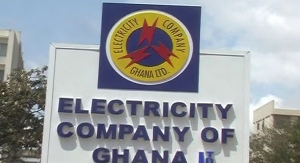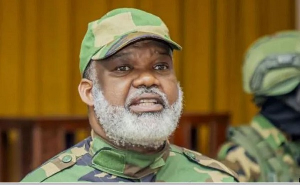Accra, Oct. 17, GNA - Barely a year after World Health Organisation (WHO) declared Ghana polio free, a positive polio case has been detected at Yendi Hospital, medical doctors confirmed to GNA on Friday. A specimen of the new case, which involves a 29-month-old girl, tested positive during analysis at the Noguchi Memorial Institute for Medical Research (MMIMR) in Accra.
Dr Sampson Anning-Abankwah, Yendi District Medical Officer, confirmed the case in a telephone interview with Ghana News Agency. He said when the child was examined after admission at the hospital for weakness in the joints and legs, it was realised that she had gone through all the necessary immunisations. The medics therefore wondered why she had to experience signs of polio.
"Further analysis that would be done would determine where and why she had the virus," Dr Anning-Abankwah said, adding that efforts were being made to avoid the virus spreading.
Dr Kwadwo Antwi Agyei, Programme Manager for Expanded Programme on Immunisation (EPI) of Ghana Health Service, also confirmed the case in a telephone interview. He said the specimen would be sent to South Africa for further sequencing to determine the source of the polio virus. "Until that is done we would not be able to tell whether it is coming from Nigeria or elsewhere," he said. Ghana was declared a polio free country after recording no cases of wild polio for three continuous years. Dr Antwi Agyei said a technical team was out on the field, collecting specimen for analysis whilst health personnel were also embarking on a five-day National Integrated and Child Health Campaign to immunise children under-five years against polio and other childhood diseases.
He gave the assurance that the detection of the new case would not disrupt the efforts made in declaring Ghana a polio free country. "We would be strengthening and intensifying our immunisation efforts and ensure that every child is immunised," Dr Agyei said. The National EPI involved support for routine immunisation, accelerated control of vaccine preventable disease, surveillance for vaccine preventable diseases, support for cold chain and vaccine management and injection safety and waste management practices. As a policy, each child should receive a dose of BCG at birth, three doses of DPT-HepB+Hib at six, 10 and 14 weeks, four doses of OPV at birth, six, 10 and 14 weeks, a dose of measles at nine months, and a dose of yellow fever at nine months.
Every woman of child bearing age (12-44 years) should receive five doses of tetanus toxoid. The immunisation system consists of the immunisation service, vaccine management, logistics (including cold chain support), surveillance of vaccine preventable infections, and advocacy and social mobilisation.
There are three components of the EPI system. These are routine immunisation which is delivered through the Reaching Every District (RED) approach in all districts, Accelerated Disease Control (ACD), which comprises the campaigns, also known as Supplemental Immunisation Activities (SIAs) and child health days (CHDs), and Vaccine Preventable Disease (VPD) Surveillance, targeting polio, measles, neonatal tetanus (NT) and yellow fever.
Health News of Friday, 17 October 2008
Source: GNA

















